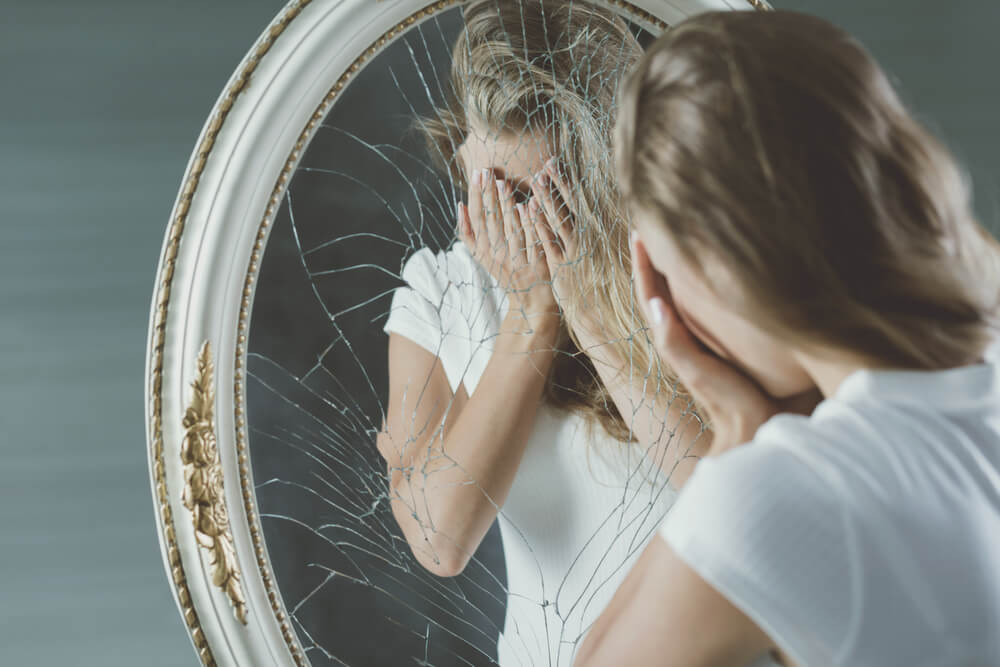Self-esteem and depression are important, although the source of depression is clearly multifactorial, some clinical studies show that low self-esteem maintained over time makes us much more vulnerable to these types of conditions. We have no positive feelings towards our own being ends up leaving us without psychological resources.
We understand self-esteem as a set of feelings that generate a concept of itself as well, while the concept of itself essentially covers this whole set of ideas and beliefs that define the mental image of who we are, self-esteem is above all a basic emotional component for human well-being.
- Low self-esteem makes us feel bad about ourselves.
- Generates disconnection.
- Discouragement and great vulnerability in the development of various psychological disorders.
Therefore, it is not surprising that psychologists and psychiatrists take this psychological dimension into account when understanding depressive spectrum disorders; however, the Diagnostic and Statistical Manual of Mental Disorders (DSM-V) does not include low self-esteem among a person’s criteria. they must meet to be diagnosed with depression. However, they take into account dimensions such as the “feeling of uselessness”.
Researchers in personality psychology, on the other hand, have always shown great interest in the relationship between self-esteem and depression, for them the question would be: is self-esteem a factor that can cause depression?Or is depression itself what ends up damaging self-esteem?
We often get up, have lunch and go out without knowing we’re naked, no matter what clothes we wear or the brand of jeans or T-shirts if we face the world with low self-esteem every day. its small openings and fragile armor all between: abuse, fear, insecurity, negativism?
Depressions usually have a very diffuse and multifactorial origin, not to mention endogenous factors that we cannot always control; however, no one can ignore that any mind with low self-esteem results in low effectiveness in dealing with and managing the simplest problems. , the person with low self-esteem observes the world through very dark lenses.
However, the only way to demonstrate this link between self-esteem and depression is through scientific studies and, mainly, longitudinal research, as well as as an example, the University of Basel recently published a very illustrative work on the subject that can give us some answers, contrasting the opposite directions between “low self-esteem that generates depression”, ‘depression that generates low self-esteem’.
Depending on the vulnerability model, some people have a personality profile characterized by low self-esteem, from this point of view, this psychological model will treat the events of life in a negative way, in the same way a skill as basic as resilience will be lacking.
Self-esteem and depression are linked in the vulnerability model to indicate people without resilience and with low emotional solvency.
Let’s move on to the opposite view. According to the study mentioned above, one thing that can also be observed in the longitudinal study is that depression itself can often shape low self-esteem. All this range of desperate, negative and exhausting feelings that revolve around the depressive mind are the ones that directly undermine self-esteem.
Which one do we get? With the pattern of vulnerability or scar, who defends depression as a cause of low self-esteem?The American Psychological Association (APA) is clear: low self-esteem is a risk factor in the development of various psychological disorders, including depression.
In addition, in one of his publications he warned that self-esteem and depression are so strongly correlated in cross-cutting studies that it is a priority to develop prevention strategies suitable for the adolescent population. age group. Worse, the number of suicides is also increasing.
So the vulnerability model is a model that we should all take into account, either way, this also fits Beck’s cognitive triad model for people at higher risk of depression, that is, they are profiles with a negative view of the world, who do not trust the future and see themselves as worthless individuals.
These kinds of considerations, of limited and grim approaches, lead nowhere, let alone to the expression of a life full of meaning, optimism and full of hope, it has been proven that self-esteem and depression maintain a bond of unity that we cannot overlook. So, let’s invest in this part of our personal universe. We will keep the garden of our self-esteem strong, bright, well maintained in all its aspects and spaces.

